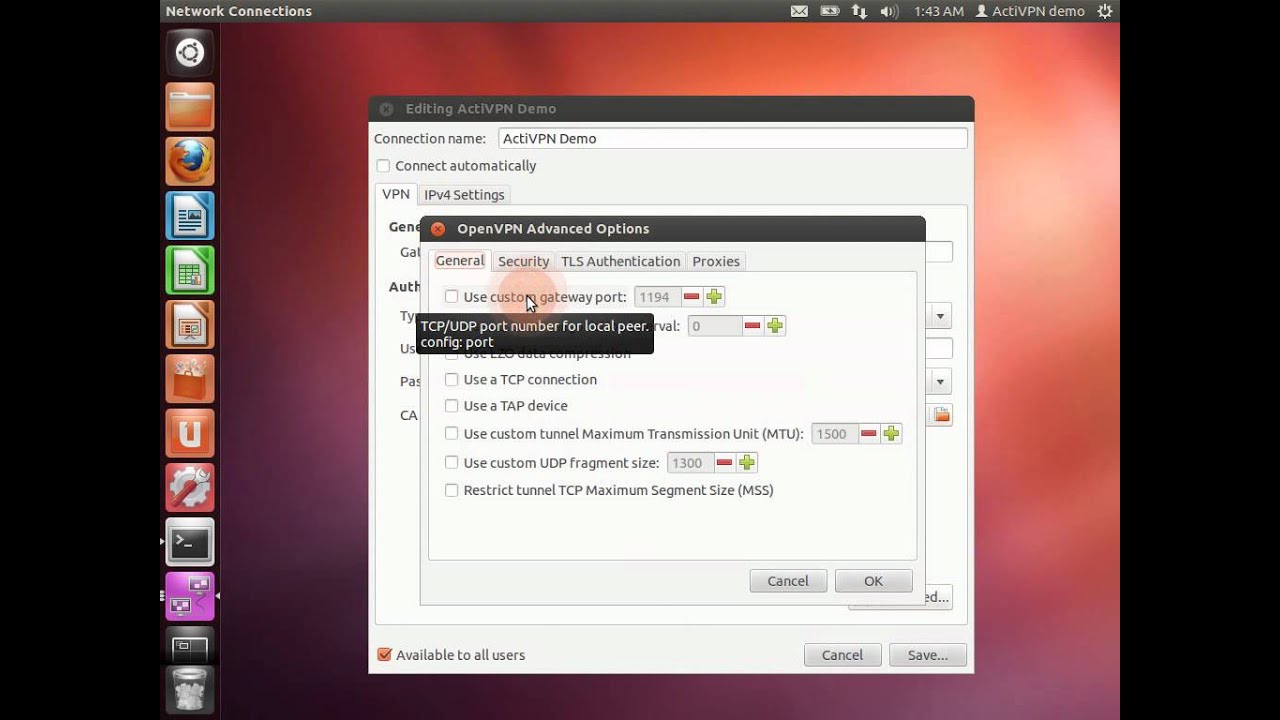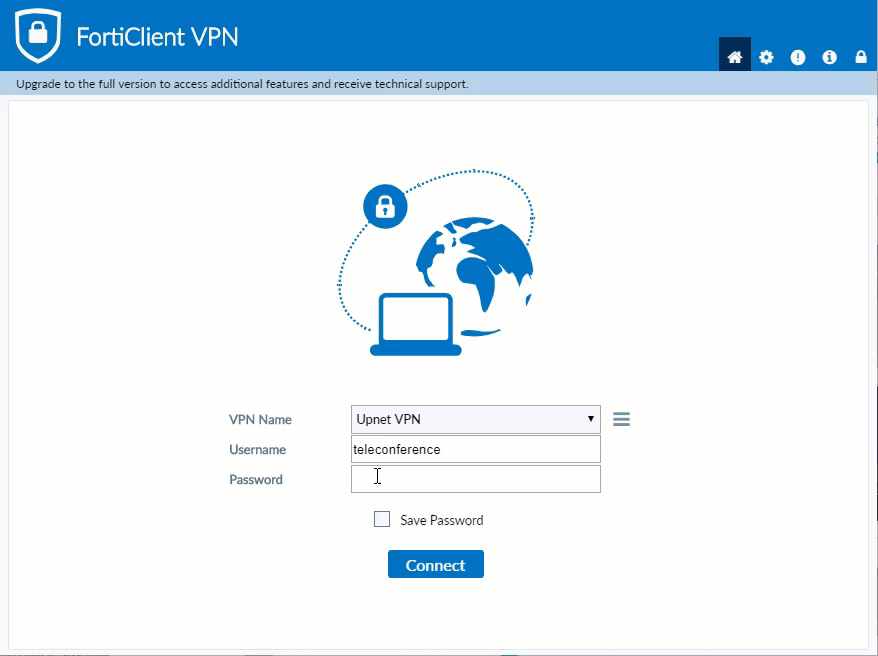
- #LINUX VPN CLIENT INSTALL#
- #LINUX VPN CLIENT UPDATE#
- #LINUX VPN CLIENT CODE#
- #LINUX VPN CLIENT PASSWORD#
#LINUX VPN CLIENT PASSWORD#
Note: Please note that if you disable password authentication while configuring these servers, you may run into difficulties when transferring files between them later on in this guide. Step 14 - Testing Your VPN Connection (Optional).Configuring Clients that use update-resolv-conf.Configuring Clients that use systemd-resolved.Step 13 - Installing the Client Configuration.Step 12 - Generating Client Configurations.Step 11 - Creating the Client Configuration Infrastructure.Step 8 - Adjusting the OpenVPN Server Networking Configuration.(Optional) Point to Non-Default Credentials.(Optional) Adjust the Port and Protocol.(Optional) Push DNS Changes to Redirect All Traffic Through the VPN.Step 6 - Generating a Client Certificate and Key Pair.Step 5 - Configuring OpenVPN Cryptographic Material.Step 4 - Signing the OpenVPN Server’s Certificate Request.Step 3 - Creating an OpenVPN Server Certificate Request and Private Key.Step 1 - Installing OpenVPN and Easy-RSA.Verify that libss_ike is added to the library path: $ ldconfig -p | grep ike For that, add to /etc/ld.so.conf the path where the library is located (e.g., /usr/lib), and then run ldconfig command.

#LINUX VPN CLIENT UPDATE#
To solve this problem, you need to update the dynamic linker to incorporate libss_ike library. iked: error while loading shared libraries: libss_ike.so.2.2.1: cannot open shared object file: No such file or directory I am getting the following error while running iked. Once you create a configuration, you can initiate a VPN connection simply by clicking on the configuration. To create a new VPN configuration, click on Add button, and fill out VPN site configuration. This GUI application allows you to manage remote site configurations and to initiate VPN connections. Now start qikea which is an IPsec VPN client front end. This daemon speaks the IKE protocol to communicate with a remote host over IPSec as a VPN client. Reload run-time bindings of shared libraries to incorporate newly installed shared libraries: $ sudo ldconfigįirst launch IKE daemon ( iked).
#LINUX VPN CLIENT INSTALL#
$ sudo yum install qt-devel cmake gcc-c++ openssl-devel libedit-devel flex bisonĪfter installation, one last step is to open /etc/ld.so.conf with a text editor, and add the following line. Similar to Debian based systems, you will need to install a number of dependencies including Qt4 before compiling it. Install Shrew VPN Client on CentOS, Fedora or RHEL $ cmake -DCMAKE_INSTALL_PREFIX=/usr -DQTGUI=YES -DETCDIR=/etc -DNATT=YES. $ sudo apt-get install cmake libqt4-core libqt4-dev libqt4-gui libedit-dev libssl-dev checkinstall flex bison So you will need to install its development files as part of dependencies. Shrew Soft VPN client GUI requires Qt 4.x. Install Shrew VPN Client on Ubuntu, Debian or Linux Mint
#LINUX VPN CLIENT CODE#
Here is how you can install Shrew Soft VPN client on Linux platforms.įirst, download its source code from the official website. Shrew Soft VPN is a free IPsec VPN client supporting a number of authentication methods, key exchange, encryption and firewall traversal options. While there are also open-source VPN server/client alternatives such as OpenSwan, Tinc, they are typically lacking in sophisticated IPsec support, such as Internet Key Exchange (IKE) which is a standard IPsec protocol used to secure VPN key exchange and authentication. There are many commercial VPN gateways available, which come with their own proprietary VPN client software. How can I install Shrew Soft VPN client on ?


For that, I'm trying to use Shrew Soft VPN client, which is available for free. Question: I need to connect to an IPSec VPN gateway.


 0 kommentar(er)
0 kommentar(er)
